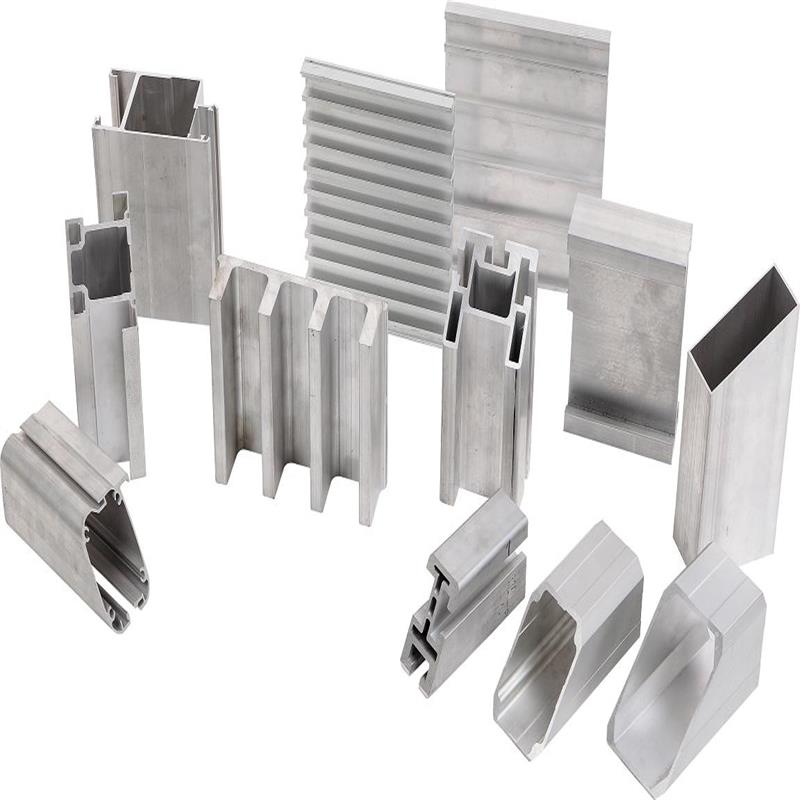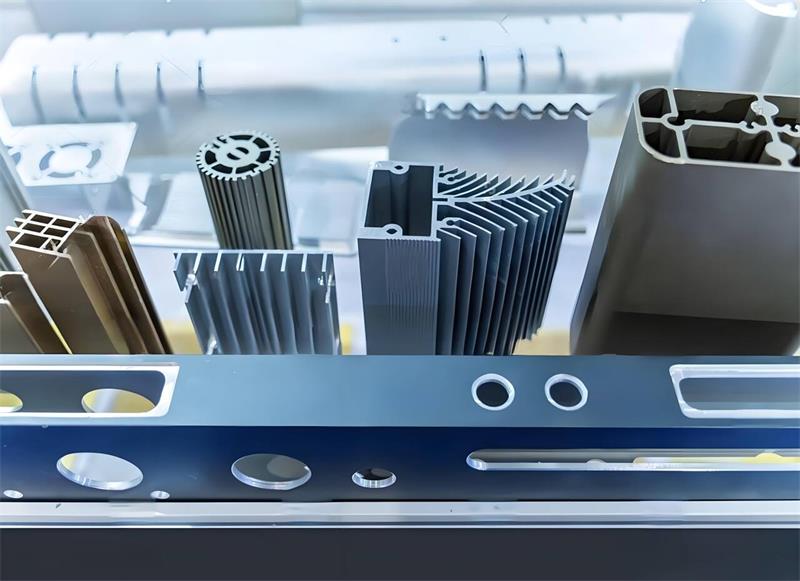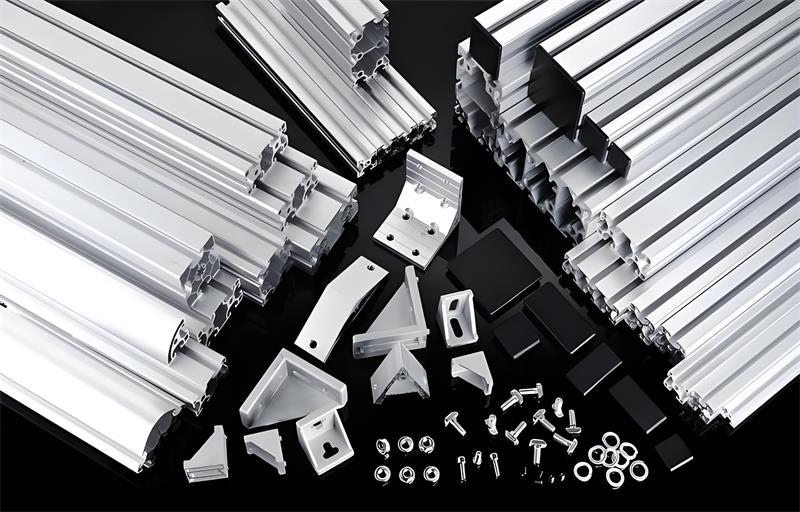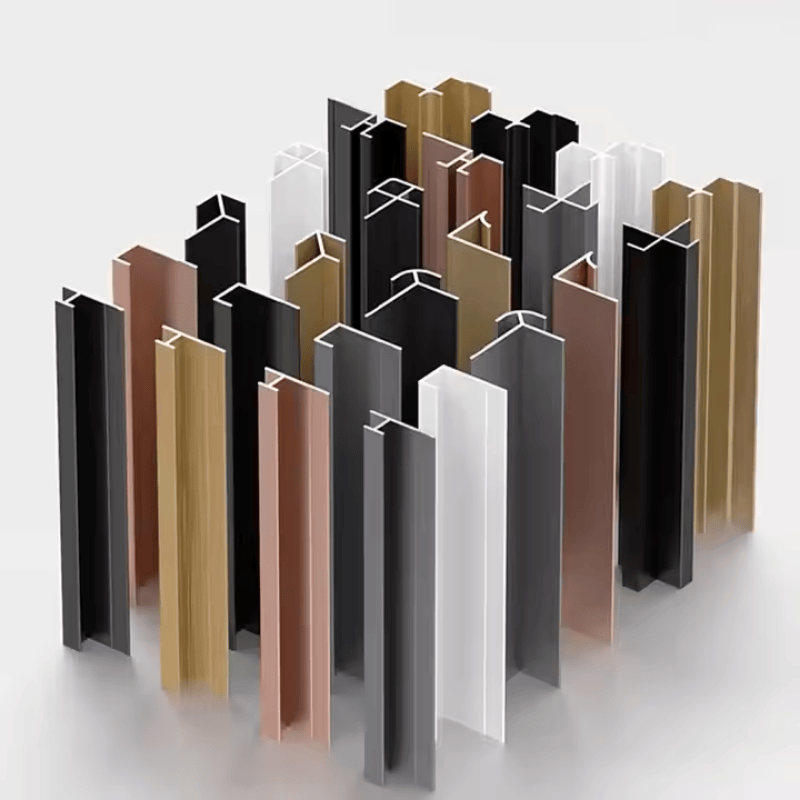How Do I Choose an Aluminum Profile?

How Do I Choose an Aluminum Profile?
Learn how to choose the right aluminum profile for your project. Discover the key factors, including alloy selection, size, strength, and finishing options. Trust Aluinno Aluminum for high-quality, durable profiles tailored to your needs.·
Outline
Introduction
· Overview of aluminum profiles
· Importance of selecting the right aluminum profile
What Are Aluminum Profiles?
· Definition of aluminum profiles
· Types of aluminum profiles available in the market
Why Choose Aluminum Profiles?
· Benefits of aluminum profiles
· Durability, versatility, and sustainability
Factors to Consider When Choosing Aluminum Profiles
· Purpose of use
· Strength requirements
· Size and dimensions
Types of Aluminum Alloys Used in Profiles
· 6061 vs. 6063 aluminum alloys
· Comparison of alloy properties
Choosing Aluminum Profiles Based on Application
· Industrial uses
· Architectural applications
· Automotive industry
Surface Finishing Options for Aluminum Profiles
· Anodizing
· Powder coating
· Mill finish
Consideration of Weight and Strength
· How weight impacts performance
· Balancing weight and strength for specific uses
Thermal Conductivity and Insulation Factors
· Importance of thermal conductivity in building applications
· Insulation properties of aluminum profiles
Custom vs. Standard Aluminum Profiles
· When to opt for custom profiles
· Cost-effectiveness of standard profiles
Environmental Considerations
· Aluminum as a sustainable material
· Recyclability of aluminum profiles
Cost and Budget Considerations
· How cost impacts the choice of aluminum profiles
· Balancing quality and affordability
Supplier Reputation and Certifications
· Importance of choosing certified suppliers
· Verifying supplier reputation
How to Measure and Order Aluminum Profiles
· Guide to taking proper measurements
· Ordering tips to avoid mistakes
Conclusion
· Recap of the key factors to consider
· Final thoughts on choosing the right aluminum profile
FAQs
· What is the difference between anodized and powder-coated aluminum profiles?
· How do I know which aluminum alloy to choose?
· Can I use aluminum profiles for outdoor structures?
· Are aluminum profiles eco-friendly?
· How do I ensure the aluminum profile I choose is of high quality?
How Do I Choose an Aluminum Profile?
Introduction
Choosing the right aluminum profile can be a challenging task, especially with so many options available in the market. Aluminum profiles are widely used across various industries, from construction to automotive manufacturing, and selecting the right profile is crucial for ensuring optimal performance and longevity. Whether you are building a lightweight structure, designing an architectural masterpiece, or developing high-tech machinery, the right aluminum profile will ensure that your project succeeds.
This comprehensive guide will take you through all the essential factors to consider when choosing aluminum profiles. From understanding the basic types of profiles available to examining material properties, finishing options, and environmental considerations, this article will equip you with everything you need to make an informed decision.
At Aluinno Aluminum Company, we believe in providing top-quality aluminum profiles that suit a wide range of applications. By the end of this guide, you'll be ready to choose the perfect aluminum profile for your project—whether standard or custom-made.
What Are Aluminum Profiles?
Aluminum profiles are extruded products made from aluminum that are shaped into a wide variety of forms, including round, square, rectangular, and more complex custom geometries. These profiles are used for structural, aesthetic, and functional purposes across industries such as construction, automotive, aerospace, electronics, and many more.
The extrusion process involves forcing a heated aluminum billet through a die, which gives the material its final shape. After the extrusion, aluminum profiles may undergo various surface treatments, such as anodizing or powder coating, to enhance their durability and appearance.
Types of Aluminum Profiles Available in the Market
Aluminum profiles come in many different types based on their shapes and applications. Some of the most common types include:
· T-slot profiles: Widely used for assembling frameworks and machine structures. Their design allows for easy attachment of other components.
· Round profiles: Typically used for pipes, tubes, or cylindrical structures.
· Rectangular profiles: These are most commonly used in window and door frames, architectural elements, and general structural applications.
· L-shaped and U-shaped profiles: Often used for edge protection, brackets, or support structures.
Profiles can also be customized to meet specific design requirements, offering endless possibilities for various industries.
Why Choose Aluminum Profiles?
Aluminum profiles offer several distinct advantages, making them one of the most popular materials in modern manufacturing and construction. Here are some key benefits of using aluminum profiles:
Durability
One of the primary reasons for choosing aluminum is its exceptional durability. Unlike other materials that may rust or degrade over time, aluminum profiles have a natural oxide layer that protects them from corrosion. This makes aluminum ideal for outdoor applications where exposure to moisture and other environmental factors is a concern.
Versatility
Aluminum profiles can be adapted to virtually any shape or size, making them highly versatile for a wide range of applications. Whether you need lightweight structural support or intricate architectural details, aluminum profiles can be designed to meet your needs. Their adaptability allows designers and engineers to develop innovative solutions for complex projects.
Sustainability
Aluminum is a highly sustainable material. It is 100% recyclable and can be reused multiple times without losing any of its inherent properties. This makes it an eco-friendly option for projects that prioritize environmental responsibility. Additionally, recycling aluminum requires only 5% of the energy used to produce new aluminum, significantly reducing its carbon footprint.
By choosing aluminum profiles from Aluinno Aluminum Company, you not only get high-quality products but also contribute to a sustainable future.
Factors to Consider When Choosing Aluminum Profiles
Choosing the right aluminum profile involves several critical considerations. Below are some of the key factors to keep in mind.
Purpose of Use
Before choosing an aluminum profile, it's essential to understand the specific purpose it will serve. Aluminum profiles can be used in various applications, including construction, automotive, electronics, and furniture. Each application has unique requirements, and the profile you select should match the intended use. For instance, profiles used for structural purposes need to meet strength and load-bearing requirements, while profiles used in interior design may prioritize appearance and aesthetic appeal.
Strength Requirements
The strength of aluminum profiles can vary depending on the alloy used. Profiles made from higher-strength alloys like 6061 are suitable for heavy-duty applications, such as construction and industrial machinery. On the other hand, profiles made from softer alloys like 6063 are better suited for architectural applications where appearance is more important than strength.
Size and Dimensions
The dimensions of the aluminum profile are crucial for its performance. Be sure to measure accurately and account for tolerances, especially in applications that require precise fits. Many suppliers, including Aluinno Aluminum, offer standard sizes, but custom dimensions can be requested for more specialized needs.
Types of Aluminum Alloys Used in Profiles
Aluminum profiles are made from different alloys, each with its own set of characteristics. The most commonly used alloys for extrusion are 6061 and 6063.
6061 Aluminum Alloy
This alloy is known for its excellent mechanical properties, including high strength and corrosion resistance. It is often used in structural applications, such as bridges, cranes, and heavy-duty machinery. 6061 aluminum can also be heat-treated to further enhance its strength.
6063 Aluminum Alloy
Often referred to as the "architectural alloy," 6063 is widely used in applications that require an excellent surface finish. This alloy is commonly used in window frames, doors, and other architectural elements where appearance and ease of fabrication are key concerns. Although it is not as strong as 6061, its superior finish and corrosion resistance make it ideal for applications where aesthetics are important.
Both alloys are readily available at Aluinno Aluminum Company, giving you the flexibility to choose based on your project’s specific requirements.
Choosing Aluminum Profiles Based on Application
Industrial Uses
Aluminum profiles are indispensable in industrial applications due to their lightweight yet durable nature. They are often used in machinery, automation systems, and material handling equipment. For example, T-slot aluminum profiles are commonly employed in building machine frames, conveyors, and assembly lines. Their modular design allows for easy assembly and reconfiguration, saving time and cost in industrial environments.
Architectural Applications
Aluminum profiles are highly favored in the architectural industry for both functional and decorative purposes. They are used in window and door frames, curtain walls, railings, and decorative elements. Aluminum’s resistance to corrosion and ability to hold a variety of finishes makes it an ideal choice for outdoor structures, ensuring long-lasting performance even in harsh weather conditions. Aluinno Aluminum provides premium architectural aluminum profiles that combine strength with aesthetic appeal, helping architects create modern, sleek designs.
Automotive Industry
In the automotive industry, aluminum profiles are used to create lightweight yet strong vehicle components. With the push toward fuel efficiency and reducing vehicle weight, aluminum has become an integral material for manufacturing car frames, structural elements, and decorative trims. Profiles made from high-strength alloys like 6061 are often used in load-bearing components, while lighter profiles are used for interior and exterior detailing.
Surface Finishing Options for Aluminum Profiles
The surface finish of an aluminum profile affects both its appearance and its ability to resist corrosion. Choosing the right finish is critical, especially for applications exposed to harsh environments.
Anodizing
Anodizing is an electrochemical process that thickens the oxide layer on the surface of the aluminum, improving its corrosion resistance and wear properties. It also allows the material to be dyed in various colors, providing aesthetic versatility. Anodized profiles are commonly used in architectural applications, where both appearance and durability are critical.
Powder Coating
Powder coating involves applying a dry powder to the aluminum profile and baking it to form a tough, protective layer. This finish is highly durable and can be customized in a wide range of colors and textures. Powder-coated aluminum profiles are frequently used in outdoor applications due to their excellent resistance to UV rays and corrosion.
Mill Finish
The mill finish is the natural finish of aluminum as it comes out of the extrusion process. It is smooth but may have some surface imperfections. Mill-finished profiles are suitable for applications where the appearance is not a priority, such as internal structural components.
Consideration of Weight and Strength
Aluminum profiles are known for their lightweight properties, making them easier to handle and transport compared to other materials like steel. However, it’s important to balance weight with strength. While lightweight profiles may be ideal for applications that require easy assembly or minimal load, heavier profiles may be needed for more demanding applications. Aluinno Aluminum offers a range of profiles that cater to both lightweight and heavy-duty applications, ensuring that you get the right balance between weight and strength.
Thermal Conductivity and Insulation Factors
Aluminum is an excellent conductor of heat, which can be both an advantage and a disadvantage depending on the application. In building construction, for example, aluminum profiles used in windows and doors may require thermal breaks to prevent heat transfer and improve energy efficiency. Aluinno Aluminum offers profiles with thermal breaks that help maintain insulation in buildings, reducing energy costs while maintaining the structural integrity of the profile.
Custom vs. Standard Aluminum Profiles
Standard aluminum profiles are mass-produced in common shapes and sizes, making them a cost-effective option for many applications. However, custom profiles offer greater flexibility in design and can be tailored to meet specific project requirements. If your project has unique design constraints or functional needs, opting for custom profiles from Aluinno Aluminum may be the best solution. With custom profiles, you can achieve the exact dimensions, shapes, and finishes necessary to ensure optimal performance.
Environmental Considerations
Aluminum is one of the most sustainable materials available, thanks to its ability to be recycled without losing its original properties. The recycling process for aluminum consumes only 5% of the energy required to produce new aluminum, making it an environmentally friendly option for manufacturers and consumers alike.
When selecting aluminum profiles, it’s important to consider the environmental impact of the material. Many suppliers, including Aluinno Aluminum, use recycled aluminum in their products, contributing to the reduction of waste and the conservation of natural resources. By choosing aluminum profiles made from recycled materials, you can support sustainability efforts while still benefiting from the durability and versatility of aluminum.
Cost and Budget Considerations
Cost is always an important factor when choosing aluminum profiles. Higher-quality profiles may come at a premium, but they often offer better performance, durability, and longevity. It’s essential to strike a balance between cost and quality, ensuring that your selected profile meets both your budgetary constraints and the technical requirements of your project.
While it may be tempting to opt for cheaper, lower-quality profiles, this can lead to additional costs down the road in terms of maintenance and replacements. Working with a reputable supplier like Aluinno Aluminum ensures that you get a high-quality product at a competitive price, reducing the risk of future problems and delivering long-term value for your investment.
Supplier Reputation and Certifications
Choosing a reputable supplier is crucial to ensuring that the aluminum profiles you receive are of high quality and meet industry standards. Look for suppliers with relevant certifications, such as ISO 9001, which ensures that the manufacturer follows strict quality control processes.
Aluinno Aluminum Company is a trusted supplier with a proven track record of delivering high-quality, certified aluminum profiles to clients across multiple industries. With a strong focus on quality, sustainability, and customer service, Aluinno Aluminum is a reliable partner for your aluminum profile needs.
How to Measure and Order Aluminum Profiles
Accurate measurements are essential when ordering aluminum profiles. Before placing an order, make sure to double-check your dimensions, taking into account any allowances for fittings or joints. Incorrect measurements can lead to costly delays and adjustments during installation.
Many suppliers, including Aluinno Aluminum, offer expert consultation services to help you determine the right dimensions and specifications for your project. Additionally, clear communication with your supplier can help prevent errors and ensure that your order is processed correctly.
Conclusion
Choosing the right aluminum profile is essential for the success of your project. By considering factors such as the profile’s purpose, strength requirements, size, finish, and environmental impact, you can make an informed decision that ensures long-lasting performance.
Aluinno Aluminum Company offers a wide range of aluminum profiles designed to meet the specific needs of various industries. Whether you need standard or custom profiles, we provide high-quality, certified products that deliver exceptional performance and durability.
Ready to get started with your aluminum profile project? Contact Aluinno Aluminum Company today for expert consultation and high-quality profiles tailored to your specific needs. Whether you’re working on an industrial, architectural, or automotive project, our team is here to provide you with the best aluminum solutions. Visit our website or reach out directly for a quote and start making your project a success with durable, eco-friendly aluminum profiles.
FAQs
lWhat is the difference between anodized and powder-coated aluminum profiles?
Anodized profiles have an electrochemically applied finish that enhances corrosion resistance, while powder-coated profiles have a baked-on finish that provides a durable, colorful surface.
lHow do I know which aluminum alloy to choose?
If strength is a priority, opt for 6061 alloy. If surface finish and appearance are more important, choose 6063 alloy.
lCan I use aluminum profiles for outdoor structures?
Yes, aluminum profiles are highly resistant to corrosion, making them an excellent choice for outdoor applications such as window frames, railings, and curtain walls.
lAre aluminum profiles eco-friendly?
Yes, aluminum is a highly sustainable material that can be recycled without losing its properties, making it an excellent choice for eco-conscious projects.
lHow do I ensure the aluminum profile I choose is of high quality?
Always buy from certified suppliers like Aluinno Aluminum, and check for industry-standard certifications to ensure the profiles meet quality and safety standards.


 En
En



 Location:
Location:















